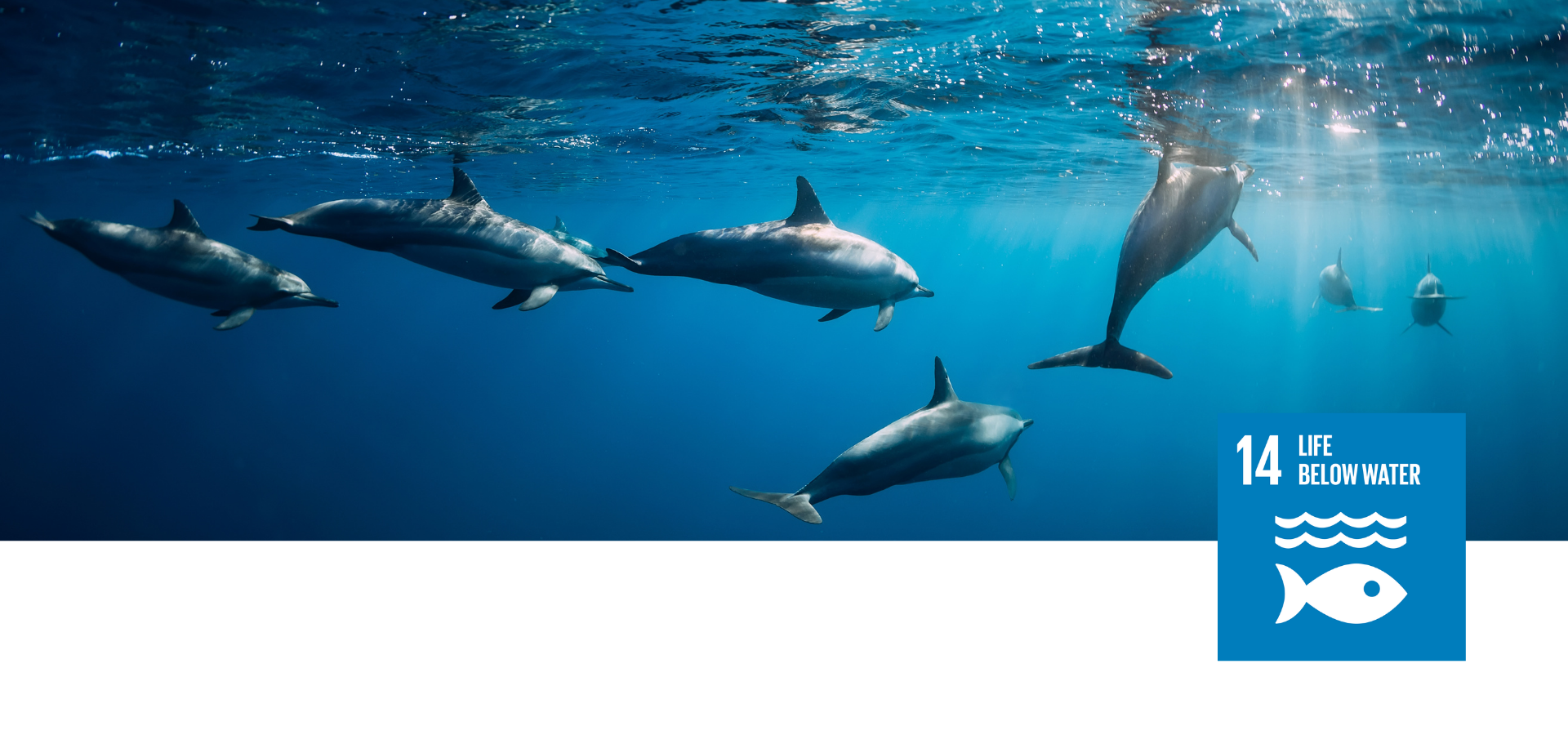
SDG 14: Life below water
Aiming to conserve and sustainably use the oceans, seas, and marine resources for the benefit of present and future generations, HKUST is committed to the protection and restoration of marine and coastal ecosystems and the reduction of marine pollution through our ocean science research and on campus operations and policies.
Curriculum
97 related courses were offered in the 2022-23 academic year.
Research
According to Science Direct, from 2019 to 2023, HKUST published 250 research papers addressing SDG 14.
About 24% of them are in the top 10% cite score and around 74% are internationally co-authored.
Research Highlights
Organic Carbon Cycling in Estuaries and Coasts
Supported by the prestigious Excellent Young Scientist Scheme of the National Natural Science Foundation of China, our faculty member Dr. HE, explored the Organic carbon cycling in estuaries and coasts. This study aims to discover the carbon sequestration capacity of water bodies, which will help direct the Hong Kong government’s carbon neutral policy needs.
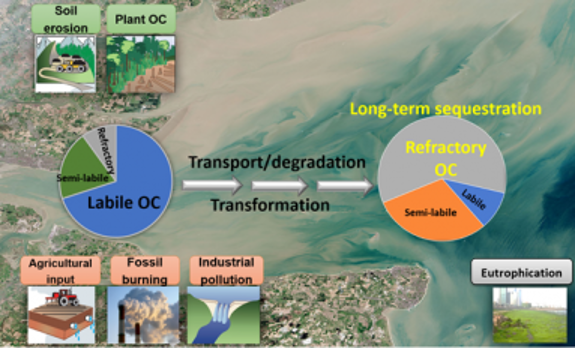
This groundbreaking study helps to understand carbon sequestration and helps to inform Hong Kong's path towards carbon neutrality.
Dual Master Program in Global Marine Resources Management
In November 2022, HKUST and the University of Southampton jointly launched the Dual Master Program in Global Marine Resources Management. This cross-continental program provides students with a multicultural learning experience, combining expertise from both universities. By addressing the blue economy and sustainable use of ocean resources, the program aims to train professionals capable of tackling complex issues in marine resources management. Graduates will have qualifications from both institutions, paving the way for further studies and career opportunities in marine science and environmental conservation. The partnership strengthens academic alliances and establishes a platform for future collaborations in research and education.
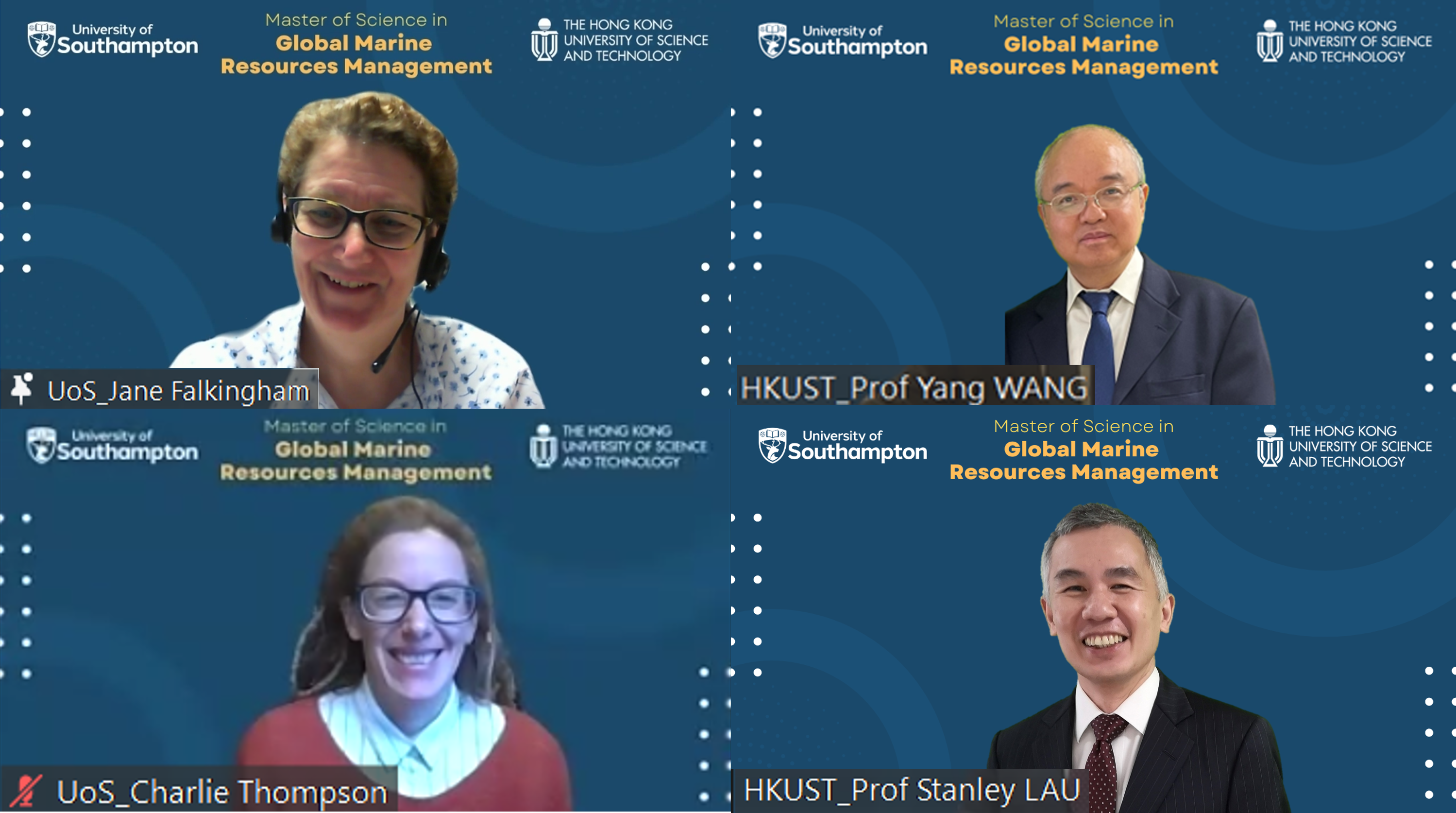
(Top row; from left) Prof. Jane FALKINGHAM, Vice-President of International and Engagement at the University of Southampton and Prof. WANG Yang, Vice-President for Institutional Advancement at HKUST
(Bottom row; from left) Dr. Charlie THOMPSON, Co-Program Director at the University of Southampton and Prof. Stanley LAU, Co-Program Director and Acting Head of HKUST’s Department of Ocean Science
Policy
Sustainable Harvesting of Seafood
HKUST’s goal is to create food and dining facilities and services that provide clean, healthy, environmentally responsible food offerings that reflect our campus sustainability vision and mission. Our Sustainable Catering Policy applies equally to HKUST managed caterers and caterers who supply services for one-time events on campus and requires campus caterers to utilize the WWF-Hong Kong Sustainable Seafood and not offer any species that are listed in the “Avoid” category.
Liquid Effluent and Protection of Watershed and Aquatic Environment
HKUST is committed to protect and uphold water quality in our surrounding environment to protect ecosystems, wildlife, and human health and welfare. Therefore, under the Safety and Environmental Protection Manual, members of the university are required to strictly follow relevant policies and practices, including compliance to applicable laws regulating liquid effluents.
Community Engagement
HKUST Connect
The Beach Cleanup @HKUST event held by HKUST Connect addressed the issue of marine pollution and promoted community involvement in protecting the marine environment. Through this service, volunteers gained awareness of the irreversible consequences of marine pollution, and the importance of the general public to working hand in hand to protect our marine environment.
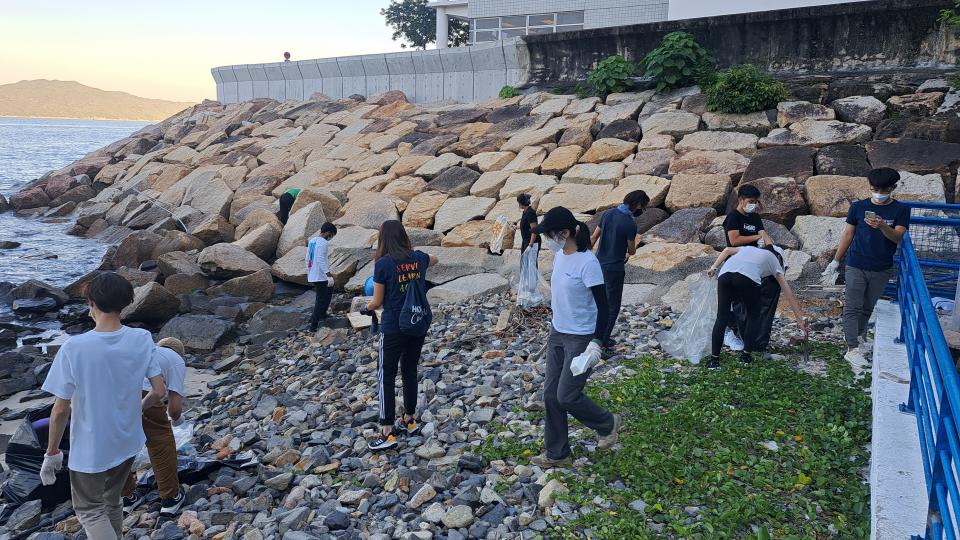
Oct 2022: Volunteers participate in cleaning and protecting our shoreline through our beach cleanup program.
Water-Saving Smart Showerheads
To promote responsible water usage among on campus residents, we installed water-saving smart showerheads equipped with water-powered LED lights that change color based on water usage. This would be aimed to foster enhanced consciousness in the importance of minimizing shower time which in return promotes practices that reduce the production of wastewater, as well as the degree of contamination of aquatic ecosystems.
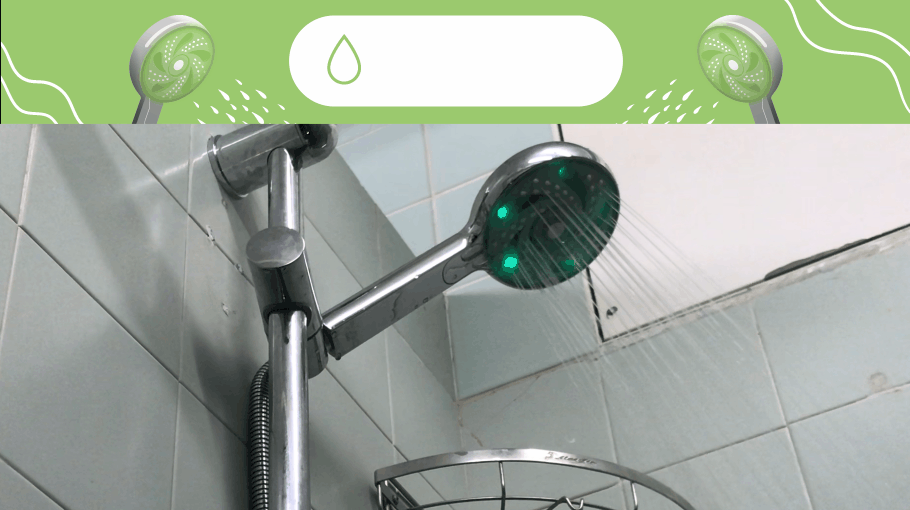
Supporting Sustainable Aquaculture
The EcoFish Series showcases local fishponds farming freshwater fish in Hong Kong and aims to promote sustainable aquaculture practices and the conservation of marine and coastal ecosystems. The event highlighted the sustainability of local fishponds as a source of food by offering an alternative to traditional fishing methods and reducing pressure on wild fish populations.
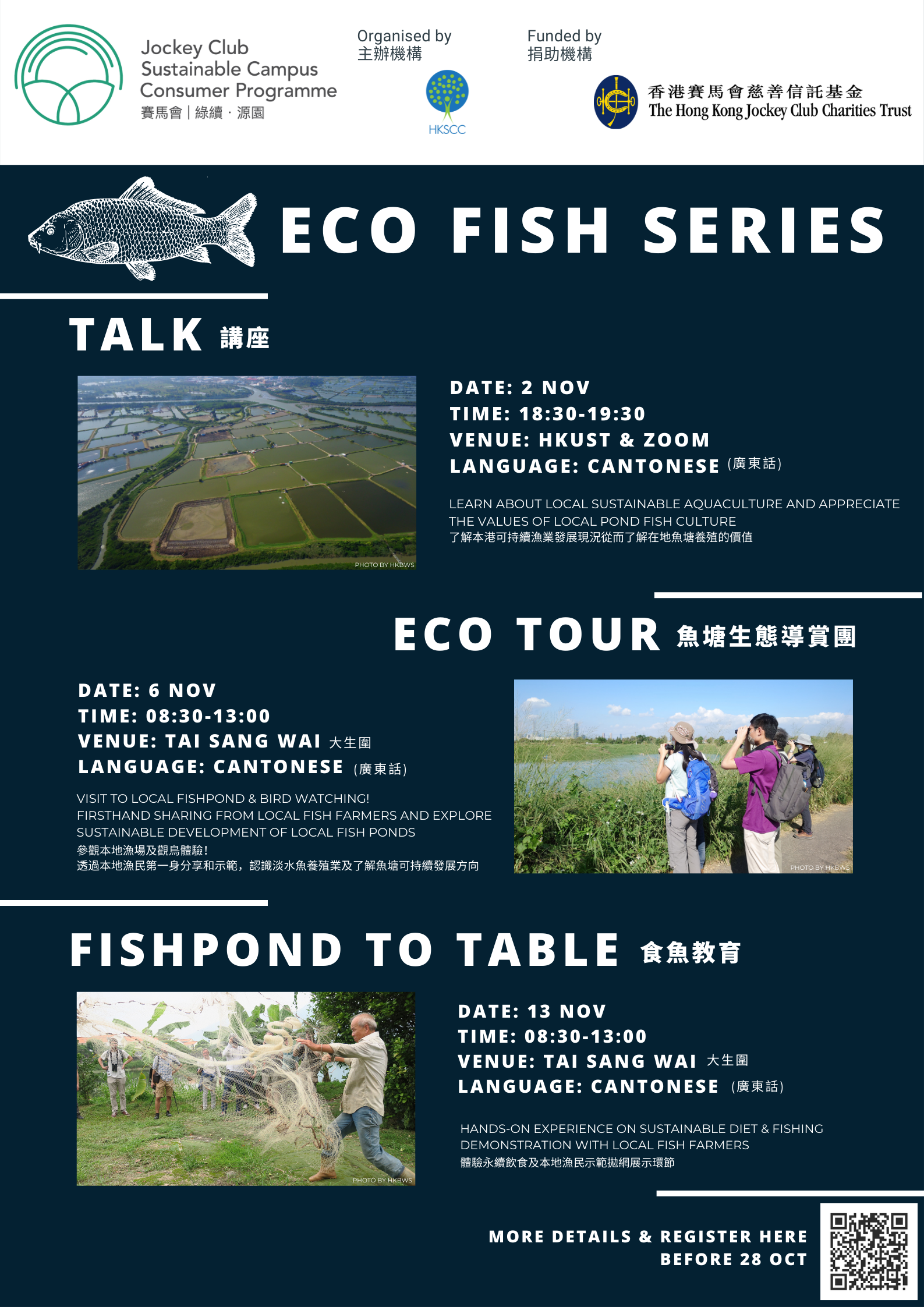
October 2022: EcoFish Series under the Jockey Club Sustainable Campus Consumer Programme
Sustainable Smart Campus as a Living Lab
The HKUST Sustainable Smart Campus as a Living Lab (SSC) is an effort to transform our campus into one where the campus itself is a platform for learning, experimenting, and showcasing new ideas and approaches.
To better monitor the health of aquatic ecosystems and conserve the marine environment around the campus, our Ocean Science professors are working on a Sustainable Smart Marine Grid, Multi-purpose underwater robot for data collection of CO2 levels, and trash cleaning operations. The possible addition of a livestream feature would enable this innovation to be used for educational purposes for the public to raise awareness about environmental conservation and ideally, be scaled up to support bigger marine conservation efforts across Hong Kong.